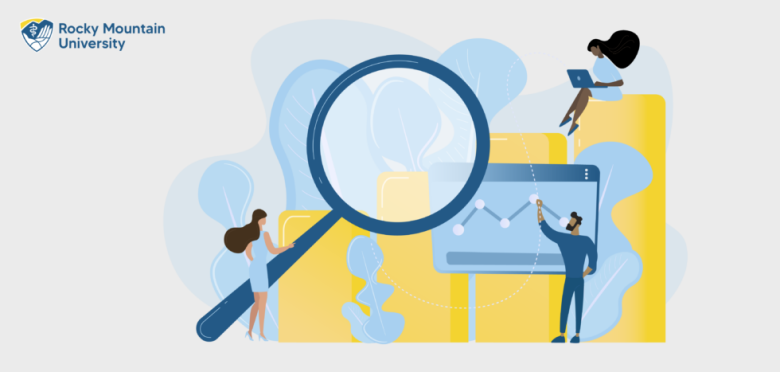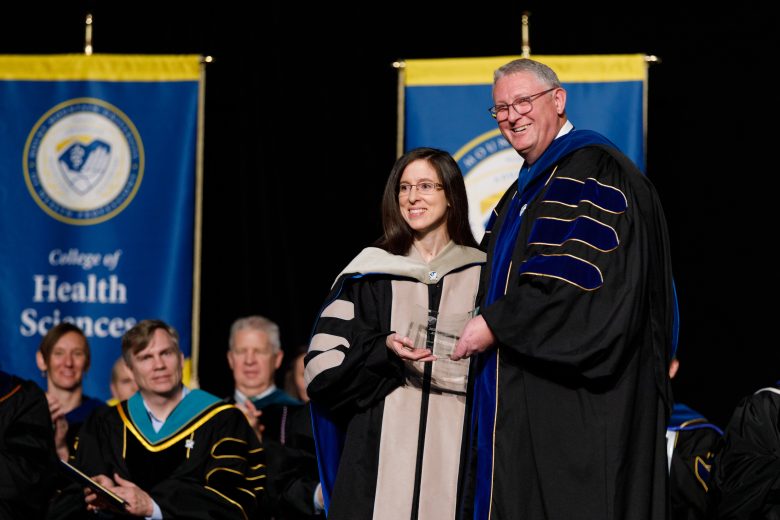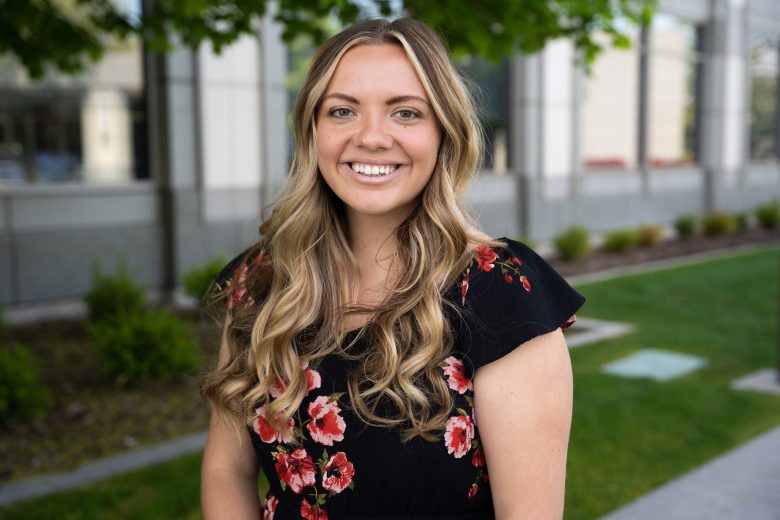Jonathan Baird, DMSc, PA-C, ATC, is always passionate about teaching his Master of Physician Assistant Studies (MPAS) students. But the beloved Rocky Mountain University of Health Professions (RMU) faculty member gets really amped up when the subject is diabetes.
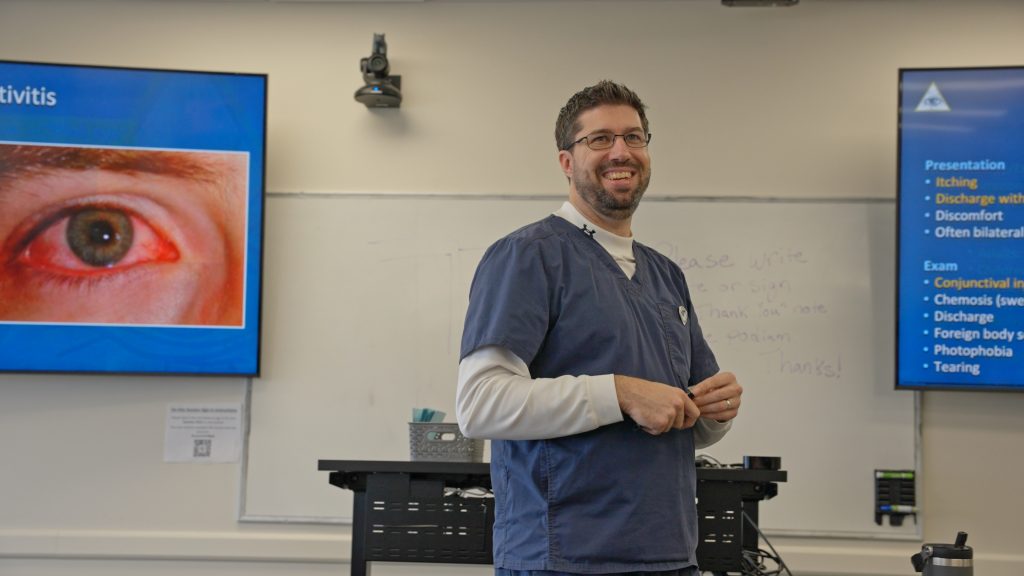
That was highlighted this fall on the University’s Instagram account. In an entertaining video, Dr. Baird exuberantly began his annual Diabetes Week like he was being introduced as a starting guard for the Chicago Bulls. After a 30-second countdown, he ran through the classroom, giving high-fives and chest bumps, while The Alan Parsons Project’s famous song “Sirius” blared from the speaker.
As usual, RMU students love their Diabetes Week hype man and the content. Considering the video went viral, receiving more than 100,000 views and 5,000 likes (and counting), they weren’t the only ones who enjoyed his unique way of hyping them up for this study topic. Comments on the post ranged from “I would pay attention every day” and “Oh man, I do miss those lectures!” to “It must be Diabetes Week!”
“It’s serious business to learn medicine, and we take it seriously,” Dr. Baird said. “But there’s nothing that says we can’t have fun while we’re doing it.”
Because of diabetes’ increasing prevalence in our society, Dr. Baird dedicates an entire week to the disease that affects one-third of Americans in one way or another.
“When you look at the condition as a whole, including pre-diabetes, we are talking about a group of Americans north of a hundred million people that are affected by dysregulation of glucose metabolism, which is the core of diabetes,” he said.
Dr. Baird said it’s imperative that people understand what exactly diabetes is and what it isn’t.
“I think too many people look at diabetes as a simple matter of, ‘Well, I just eat too much sugar.’ That’s a slice of the pie, but it doesn’t explain the entire whole,” he said. “Diabetes is probably just as much about something called the incretin effect as it is about insulin. It isn’t just an insulin problem. It is a dysregulation of a wider, very interconnected system.”
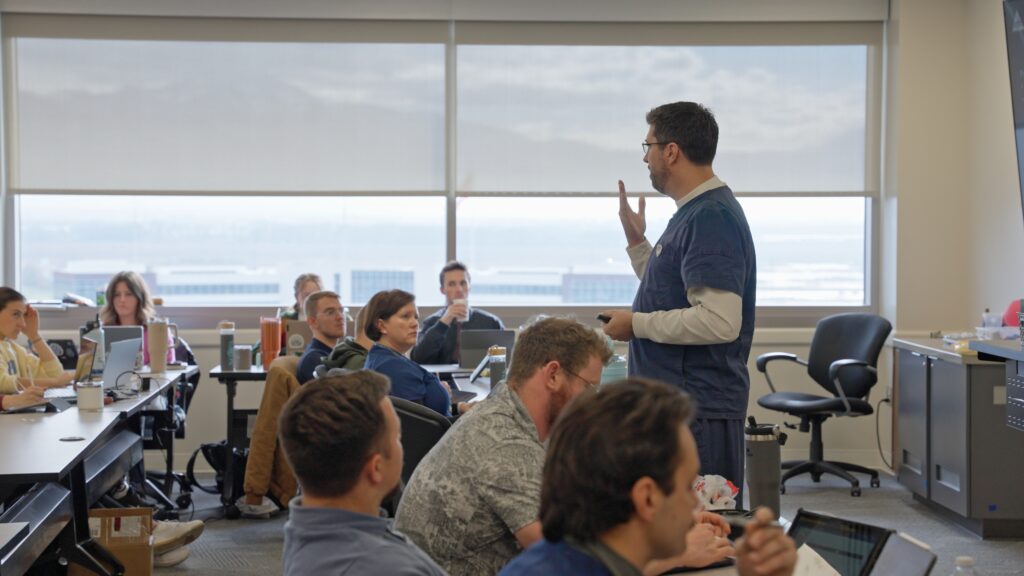
During Diabetes Week, Dr. Baird’s goal is to help RMU Physician Assistant (PA) students be able to recognize symptoms of type 2 diabetes (diabetes mellitus) and provide effective treatment to their patients. It’s an engaging, educational, and experiential part of the program. Students learn to monitor their own blood sugar (sore pricked fingers and all), practice giving themselves insulin injections (using saline), and work through mock cases. They also do a deep dive into the causes and care, including holistic ways to manage diabetes through healthy diet and exercise, along with exploring the expanding number of diabetes medications.
Dr. Baird emphasizes taking care of comorbidities and complications of diabetes. In particular, students learn how to take care of people’s feet, which are susceptible to pain and damage from the disease.
“They can get wounds that become infected and are difficult to treat. It’s the leading cause of amputation in the United States. If I can get them doing the right things, man, we can save people’s feet, and that is awesome to me,” Dr. Baird said. “But more than that, we can get them saving kidneys and people’s eyes because diabetes becomes the leading cause of having to go on dialysis or losing your eyesight. That’s a huge game-changer.”
Dr. Baird also hopes to help bring down rates of heart attacks, strokes, and additional risk factors associated with diabetes.
“Bottom line is,” he added, “if you learn how to take care of this metabolic problem right, there’s a lot of things that you can make right in somebody’s life. I think it merits the time.”
And they have some fun along the way, making it one of the most impactful weeks for future PAs.
“My hope for our students as they are in the course of their clinical practice is that they will easily recognize diabetes mellitus and confidently treat it effectively and that patients will have their health effectively improved because they met one of our students,” Dr. Baird said. “I can’t think of a time in diabetes care — in fact, in medicine in general — when it has been more exciting to be either a practitioner or a patient.”
- Regularly monitor blood sugar levels to understand and manage fluctuations
- Choose a balanced diet with an emphasis on whole foods and controlled portions
- Engage in regular physical activity to improve insulin sensitivity and overall wellness
- Take prescribed medications as directed by your healthcare provider
- Schedule regular check-ups with your healthcare team for comprehensive diabetes management
Sources: American Diabetes Association, American Heart Association, Mayo Clinic

